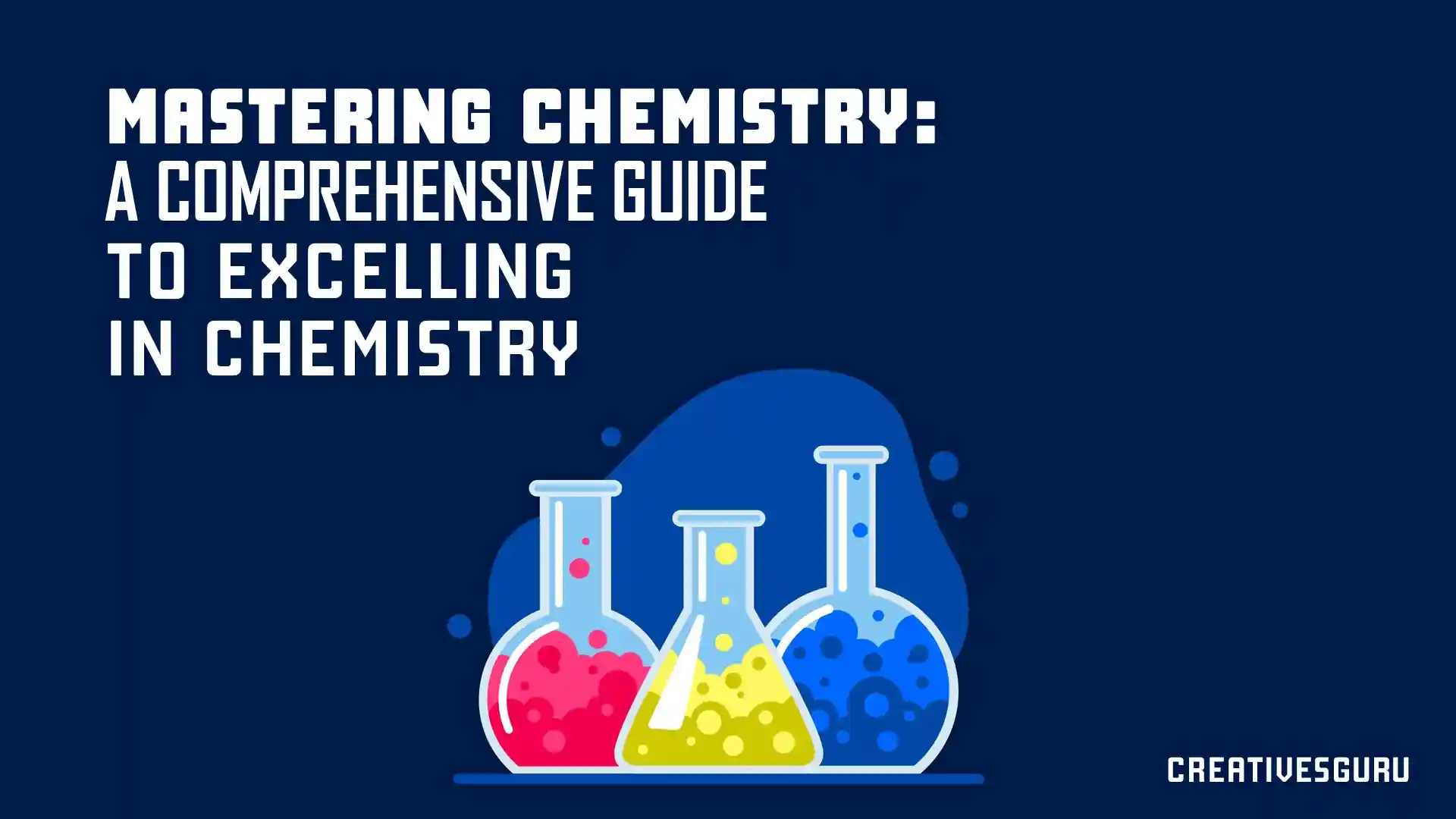One of the basic disciplines that we come into contact with on a daily basis is chemistry. Chemistry is a fundamental part of everything we consume, from the air we breathe to the food we eat. It is a crucial topic that is taught in colleges and high schools all around the globe as a result. However, many students may find it difficult to grasp chemistry, particularly those who find the topic difficult. From fundamental ideas to complex ones, this essay offers a thorough tutorial on studying chemistry.
Introduction to Mastering Chemistry
The scientific study of matter, its attributes, and the transformations that it goes through is known as chemistry. It is a large area that includes several sub-disciplines, such as analytical, physical, and inorganic chemistry, as well as organic, inorganic, and physical chemistry. You need to have a firm grasp of the fundamental ideas and ideas that underpin the discipline of chemistry in order to master it.
Understanding Basic Concepts Is Important
A foundation of fundamental ideas underlies the study of chemistry. Chemical processes, atoms, molecules, elements, and compounds are some of these ideas. You cannot master the topic until you have a firm grasp of these fundamental ideas. It is necessary to start with the fundamentals and move on to more complex subjects.
Mastering Chemistry: Molecules and Atoms
The fundamental units of matter are called atoms. Protons, neutrons, and electrons make up their composition. When two or more atoms chemically interact, molecules are created. Chemical processes can only be understood by comprehending the structure and characteristics of atoms and molecules.
Mastering Chemistry: Materials and Compounds
compounds that cannot be chemically divided into simpler compounds are known as elements. There are 118 recognized elements, and each has a distinct set of qualities. Contrarily, things that are created by the chemical combination of two or more elements are known as compounds. To comprehend how matter behaves, it is essential to comprehend the characteristics of elements and compounds.
Mastering Chemistry: Reactions in Chemistry
Chemical bonds between atoms and molecules may be broken and created during reactions. To comprehend how matter behaves, it is crucial to comprehend the many kinds of chemical interactions as well as the variables that influence them.
Mastering Chemistry: How to Excel in Chemistry
Dedication and diligence are necessary to master chemistry. To help you succeed in the topic, consider the following advice:
Create a Solid Foundation
As was already noted, mastering the topic requires a solid grasp of the fundamental principles of chemistry. Building a solid foundation thus requires careful study of the subject’s foundational concepts.
Exercise, Exercise, Exercise
To become an expert in chemistry, you must practice a lot. Therefore, it is crucial to complete as many issues as you can, such as practice problems, assignments, and previous examinations. You will get a thorough comprehension of the topic as a result.
Seek Assistance When Needed for Mastering Chemistry
It’s OK to ask for assistance if you need it while studying chemistry since it might be difficult. Your instructor, tutor, or classmates are all resources you may use. Additionally, there are internet tools that may assist you in understanding complicated ideas, such Khan Academy and YouTube videos.
Remain organized
There is a lot of memory required for chemistry, and it is simple to get overwhelmed by the material you need to retain. In order to keep organized, it is crucial to take notes, make flashcards, and summarize knowledge.
Maintain Current
It’s crucial to keep up with the most recent advancements in chemistry since the subject is continually changing. Reading scholarly publications, attending lectures and seminars, and keeping up with chemical news websites are all effective ways to do this.
Chemistry Advanced Topics in Mastering Chemistry
You may graduate to more complex subjects in chemistry after you have mastered the fundamentals. The following are a few of the most significant advanced chemistry topics:
Chemistry, Organic
It is the study of organic chemistry.
Atomic Chemistry in Mastering Chemistry
The study of inorganic substances, which don’t have carbon-hydrogen bonds, is known as inorganic chemistry. Metals, non-metallic elements, and minerals are examples of inorganic compounds. Mining, agriculture, and electronics are just a few of the sectors that depend on inorganic chemistry.
Chemistry, Physical
The study of matter’s energetic, thermodynamic, and kinetic characteristics is known as physical chemistry. Many disciplines, including chemical engineering, materials science, and nanotechnology, depend on physical chemistry.
Chemistry, Analytical
The study of analyzing chemical compounds on a qualitative and quantitative level is known as analytical chemistry. Environmental research, forensic science, and pharmaceuticals are just a few of the industries that depend on analytical chemistry.
Conclusion on Mastering Chemistry
Learning chemistry is a difficult yet rewarding process. You may do well in chemistry if you comprehend the fundamental ideas and principles, practice often, ask for assistance when you need it, remain organized, and keep up with the most recent research. You may also get a deeper grasp of the subject and seek intriguing career options in a variety of sectors by exploring advanced subjects including organic chemistry, inorganic chemistry, physical chemistry, and analytical chemistry.
FAQs
What are some of the most fundamental ideas in chemistry?
A few of the most fundamental ideas in chemistry include those related to atoms, molecules, elements, compounds, and chemical processes.
How can I be a chemical pro?
You may succeed in chemistry by laying a solid foundation, practicing often, getting assistance when necessary, being organized, and keeping up with the most recent research.
What are some advanced chemical subjects?
Analytical chemistry, physical chemistry, inorganic chemistry, and organic chemistry are some examples of advanced chemistry subjects.
How can I remain current with chemistry’s most recent advancements?
Reading scholarly publications, attending lectures and seminars, and keeping up with chemical news websites are all ways to remain current on the field’s most recent advancements.
What kind of careers are available in chemistry?
Chemical engineering, pharmaceuticals, environmental research, nanotechnology, and many more industries provide career options in the field of chemistry. concludes his essay about learning chemistry.
In conclusion, being an expert in chemistry may be a difficult but very rewarding task. You may succeed in the topic by learning the fundamental ideas and principles thoroughly, practicing often, getting assistance when necessary, being organized, and keeping up with the most recent advancements
. You may also get a deeper grasp of the subject and seek intriguing career options in a variety of sectors by exploring advanced subjects including organic chemistry, inorganic chemistry, physical chemistry, and analytical chemistry. Anyone can master chemistry and realize the incredible potential of this fascinating topic with hard work, perseverance, and a passion of learning.





